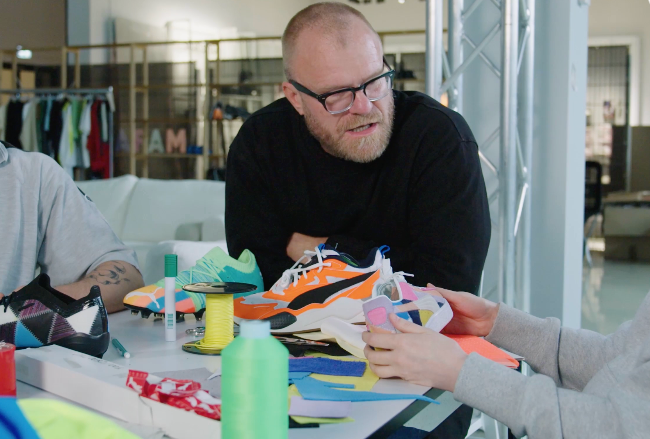
The GFA designer challenges featuring Puma and Collina Strada will be showcased in an interactive exhibition at the Global Fashion Summit: Copenhagen Edition on 27-28 June.
The challenge, presented by Smiley, focuses on exceptional creative directors and their sustainable design processes, aiming to combine style and ingenuity with eco-friendly solutions.
Nicolas Loufrani, CEO of Smiley, said: “The designer challenge is perfectly in line with our objectives and values, it resonates with the creative leaders we partner with.”
Smiley is the company behind the Smiley brand and the Future Positive Creative Fund, which aims to support and mentor designers in their creative endeavours. Both GFA and Smiley share the goal of driving positive impact by fostering and supporting creative talent.
According to the report, less than one percent of textile waste is recycled into usable fibres suitable for the fashion industry, resulting in a loss of over $100bn worth of materials each year. The majority of textile waste is either:
- discarded in landfills
- downcycled,
- incinerated
To address this issue, Heiko Desens, global creative director of Puma, partnered with Nicole McLaughlin to tackle the challenge of waste reduction in the supply chain through upcycling material cut-offs. The collaborative project, titled “Sweep the Factory Floor,” showcases the creative process of McLaughlin at her New York Studio and the Puma headquarters in Bayern, Germany.

US Tariffs are shifting - will you react or anticipate?
Don’t let policy changes catch you off guard. Stay proactive with real-time data and expert analysis.
By GlobalDataDesens stated: “Taking part in the GFA designer challenge is a great platform to share our concept ‘sweep the factory floor’ and to receive honest feedback. Most importantly, it’s an opportunity to inspire others to be bold in finding solutions to waste. We’ve found this challenge to be unpredictable, yet invigorating, resulting in unique designs.”
Meanwhile, Collina Strada’s creative director, Hillary Taymour, formed an alliance with Circulose, a textile recycling company owned by Renewcell. Circulose offers a new material derived from recycled cotton from worn-out clothes and production waste. Raw material choices contribute significantly to a brand’s environmental footprint, accounting for at least two-thirds of the impact.
Taymour added: “Through sustainable fashion, we piece together a world where beauty meets responsibility. Each product becomes a testament to our commitment to creating a better future for generations to come.”
By utilising fabrics like Circulose fashion brands can opt for sustainable alternatives instead of relying on high-impact virgin fossil-fuel-based materials. Beste, a fabric mill, produced the innovative material. The video, titled “Reimagining the Use of Materials for Bags”, documents Taymour’s journey in New York as she explores sustainable materials and incorporates insights from the Circulose team in Sundsvall, Sweden.
McLaughlin believes that the designer challenge plays a vital role in pushing the boundaries of design and transparently sharing the struggles and challenges. It provides an opportunity to learn, apply lessons, and continuously improve.
Federica Marchionni, CEO of Global Fashion Agenda, commented: “With the environmental impact of a garment largely determined in its design phase, design decisions have the power to significantly influence resource use, purchasing and usage behaviour. Our GFA Designer Challenge is therefore intended to fuse talented creatives with promising innovations and we are honoured to have the support of key partners to make this year’s challenge even more impactful. “



